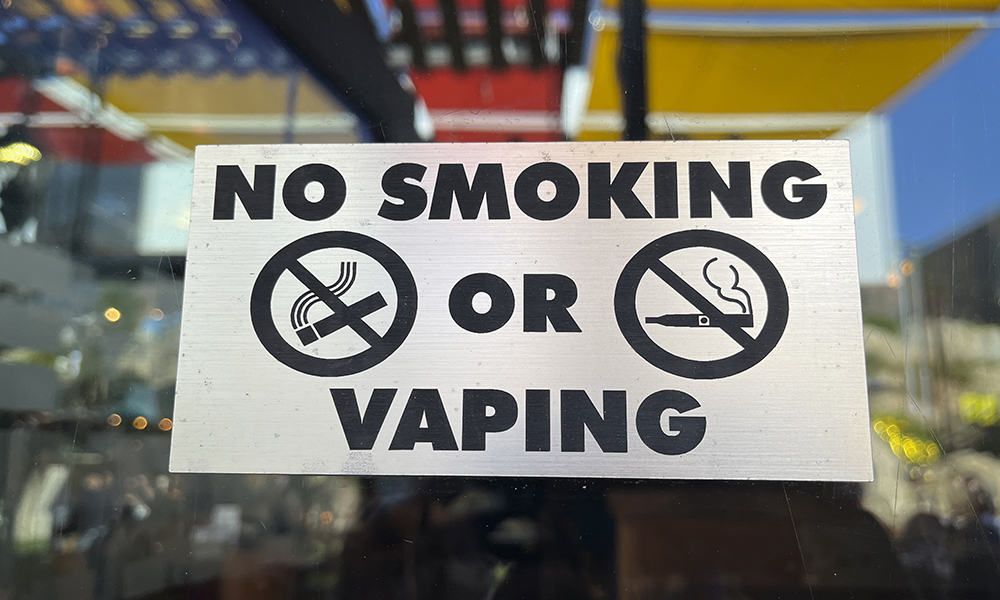
A ‘No Smoking or Vaping’ sign outside a building
A UBC Okanagan researcher says Canada is falling behind in developing intervention programs to stop young people from beginning to vape.
Dr. Laura Struik, an Assistant Professor with UBCO’s School of Nursing and a Canadian Cancer Society Emerging Scholar, researches nicotine dependence, cancer prevention and behaviour change using digital technologies.
Dr. Struik is disheartened by the results from the recent Health Canada’s Canadian Student Tobacco, Alcohol and Drugs Survey, which states that 29 per cent of Canadian students from Grades 7 to 12 have tried an e-cigarette, and 17 per cent have vaped in the past month, revealing that the number of Canadian teens using e-cigarettes are among highest in the world.
Dr. Struik says, “Youth and young adults are disproportionately at risk for the harmful effects of vaping because exposure at this age alters natural brain development and impacts lung health early on. As a result, there has been a long-standing urgency to intervene over the last few years, and we wanted to know what has been done across our nation.”
She led a recent study published last month in the American Journal of Preventive Medicine that examined campaigns directed at young people to prevent vaping uptake. For this study, a team of young trainees in Dr. Struik’s lab examined government-funded vaping prevention campaigns in Canada and the United States.
A key aspect of public health measures is to develop prevention campaigns to motivate people to make lifestyle choices that benefit themselves or society. The researchers analyzed 46 different campaigns to determine what kind of messaging was being used to influence the behavioural decisions of young people.
They found that many spoke about the potentially harmful effects of vaping on the lungs. Struik says there is room to incorporate more meaningful and comprehensive approaches in prevention efforts.
“We know from previous research that vaping uptake is influenced by various intersecting factors, including, but not limited to, mental health, self-efficacy, social norms, environmental factors, knowledge and so forth,” she says. “So, relying almost solely on telling teens about the potential physical health harms of vaping as a reason to not vape is likely going to fall flat, and recent youth-driven evidence confirms this.”
In her latest study, published this month in Addictive Behaviors Reports, Dr. Struik found that Canadian youth who vaped reported a variety of factors that supported their decision to take up vaping, including the belief that vaping was cool, and helped them cope with stress, the normalization of vaping among their peers, the lack of school policies to address vaping, and the fact that there is vague information on the harms of vaping (e.g., “could be harmful”).
She also notes that Canada lacks intervention campaigns compared to the United States. Of the 46 unique vaping prevention campaigns in her study, only two were identified in Canada—one at the federal level and one at the provincial level.
“In the end, the evidence reveals that Canada needs to step it up when it comes to vaping prevention programs aimed at our youth,” Dr. Struik adds. “And these prevention programs must be informed and driven by Canadian youth themselves to truly tackle this issue.”